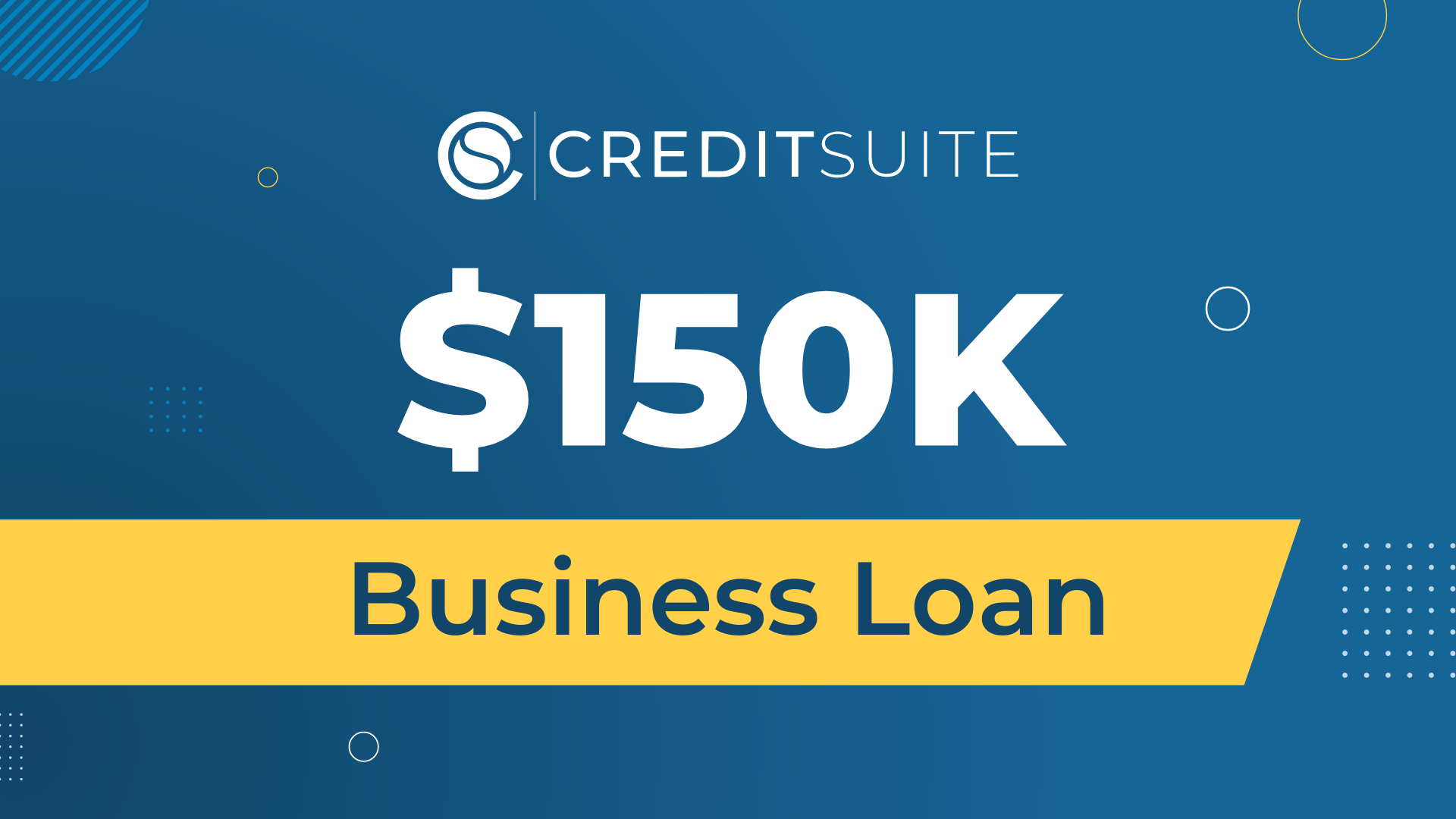Please note: Lending options, rates, and qualifications change regularly. The information in this post is based off of requirements as of original posting date of July 2, 2024.
Reaching the milestone of securing a $150,000 business loan is significant, and our guide is here to assist you every step of the way. Selecting the appropriate loan is crucial as each financing option comes with its own set of criteria.
As with all types of lending, you need to reach different requirements with the proper Fundability in order to fully qualify. This article is giving you the information you need to understand the starting points for some of the most common types of funding available. Additionally, it’s important to keep maximum approval amounts in mind when searching for funding. You will find each one we touch on in this article have a wide range of maximum limits. But with the correct combination, you have the possibility to reach those funding needs and wants much easier.
The table below has the requirements for each major business loan type.
The Best $150k Business Loans
| Loan Type | Requirements | Approval Difficulty |
| Bank Loan (Term Loan) | Good credit, 2 years in business, business cash flow | Hard |
| Business Line of Credit | Good credit, 2 years in business, business cash flow | Hard |
| SBA Loan | Good credit, 2 years in business, business cash flow | Hard |
| Credit Line Hybrid | Good credit | Easy (No Doc) |
| Business Credit Card | Good credit | Easy |
| Equipment Financing | Good credit | Easy |
| Merchant Cash Advance | Credit card sales, bad credit | Easy |
| Cash Flow Financing | Business cash flow, fair credit | Easy |
How to Qualify for a $150,000 Business Loan
Acquiring approval for a business loan depends on six essential elements. Traditional bank loans necessitate excellence in each of these areas, while alternative financing routes might offer greater flexibility. These elements include:
- Personal Credit: Several lending entities specializing in small business financing often demand that business owners maintain strong personal credit scores.
- Business Credit: Having strong business credit ratings and detailed profiles can make it easier to qualify for a loan.
- Business Income: Validation of revenue is typically required for most business financing options available.
- Collateral: Securing endorsement for loans supported by assets, such as auto loans, business property mortgages, and equipment financing, usually entails more streamlined procedures.
- Time in Business: Many commercial lenders tend to favor businesses with a track record spanning two to three years.
- Industry: Despite their financial stability, certain industries may face challenges in obtaining approval.

The Best $150k Business Loan Types
Bank Loans (Term Loans)
Traditional bank loans for businesses are often known as term loans. These involve regular repayments over a specified “term,” typically spanning 3 to 5 years. Such loans usually feature fixed interest rates.
Requirements: To qualify for bank term loans, entrepreneurs usually need a solid personal credit history (FICO Scores above 680), a business operating for at least two years, and annual revenues of at least $100,000.
Business Line of Credit
Business lines of credit, akin to term loans, are commonly provided by traditional financial institutions. Despite their attractive interest rates, fulfilling the qualification criteria can be demanding.
Once approved, you obtain a loan that functions similarly to a credit card, enabling repeated utilization. You’re assigned a credit limit, such as $150,000, and obliged to make gradual payments to settle the debt.
Requirements: Small business owners typically need a strong personal credit history (FICO Scores above 680), at least two years in business, and annual revenues over $100,000 to qualify for business lines of credit.
SBA Loans

Blending traditional banking support with government aid, SBA Loans offer favorable terms and lower interest rates. Yet securing approval for these loans can present hurdles.
Various types of SBA loans exist, with 7a and 504 loans being popular choices.
Requirements: The criteria for SBA loans may differ, but typically, they require a track record of operation (usually at least one year), favorable personal credit scores, and a certain level of business income.
Credit Line Hybrid
Credit Suite offers a distinctive solution known as the Credit Line Hybrid, providing quick approval for business loans ranging from $10,000 to $150,000, without the requirement for extensive documentation.
Requirements: To be eligible for the Credit Line Hybrid, a solid personal credit score (FICO 680+) is required. Even startups lacking a history, collateral, or robust cash flow can still apply, simplifying the process.
Business Credit Cards
Business credit cards present an extra pathway for financial support, boasting uncomplicated eligibility criteria. Operating akin to personal credit cards, they furnish access to a credit line that’s repaid monthly.
The primary disparity between business and personal cards lies in the former’s tendency to offer elevated credit limits. Furthermore, cultivating business credit empowers business owners to obtain these cards without solely relying on their personal credit history.
Requirements: In most cases, business credit cards demand a strong personal credit history, and sometimes, they might also assess the business’s income.
Equipment Financing

Securing equipment financing presents a more straightforward path to meeting eligibility requirements compared to other options.
This involves arranging either a loan or lease agreement with consistent monthly payments for obtaining machinery or heavy equipment. If you’re in need of funding, particularly a $150,000 loan for equipment acquisition, this route is worth exploring thoroughly.
Requirements: In equipment financing, having a strong personal credit history is essential, as well as your readiness to fully participate in the process.
Merchant Cash Advance
Merchant cash advances function based on a company’s “merchant processing” framework, overseeing credit card transactions. In this setup, the creditworthiness of the business owner and other factors play a minor role.
After acquiring the funds, repayment is automated through deductions from sales, eliminating the necessity for set payment schedules.
Considering their elevated financing costs, these advances should be viewed as a final option only if other funding avenues are accessible to the business owner.
Requirements: A consistent monthly income generated from credit card transactions, ideally exceeding $10,000, is highly desirable. Imperfect credit is deemed acceptable in this context.
Cash Flow Financing
Recognizing the limitations of merchant cash advances, Credit Suite offers a more favorable solution called Cash Flow Financing. Like merchant cash advances, eligibility for this financing primarily depends on a business’s cash flow.
However, unlike merchant cash advances, Cash Flow Financing doesn’t limit qualification to businesses dependent solely on credit card sales; it considers all types of cash flow.
Requirements: Strong cash flow, at least $10,000 per month. Below average credit scores accepted.
Looking for another loan amount? Consider these articles: $900k Business Loan Options, $800k Business Loan Options, $700k Business Loan Options, $600k Business Loan Options, $500k Business Loan Options, $400k Business Loan Options, $300k Business Loan Options, $250k Business Loan Options, $200k Business Loan Options, and $100k Business Loan Options.

